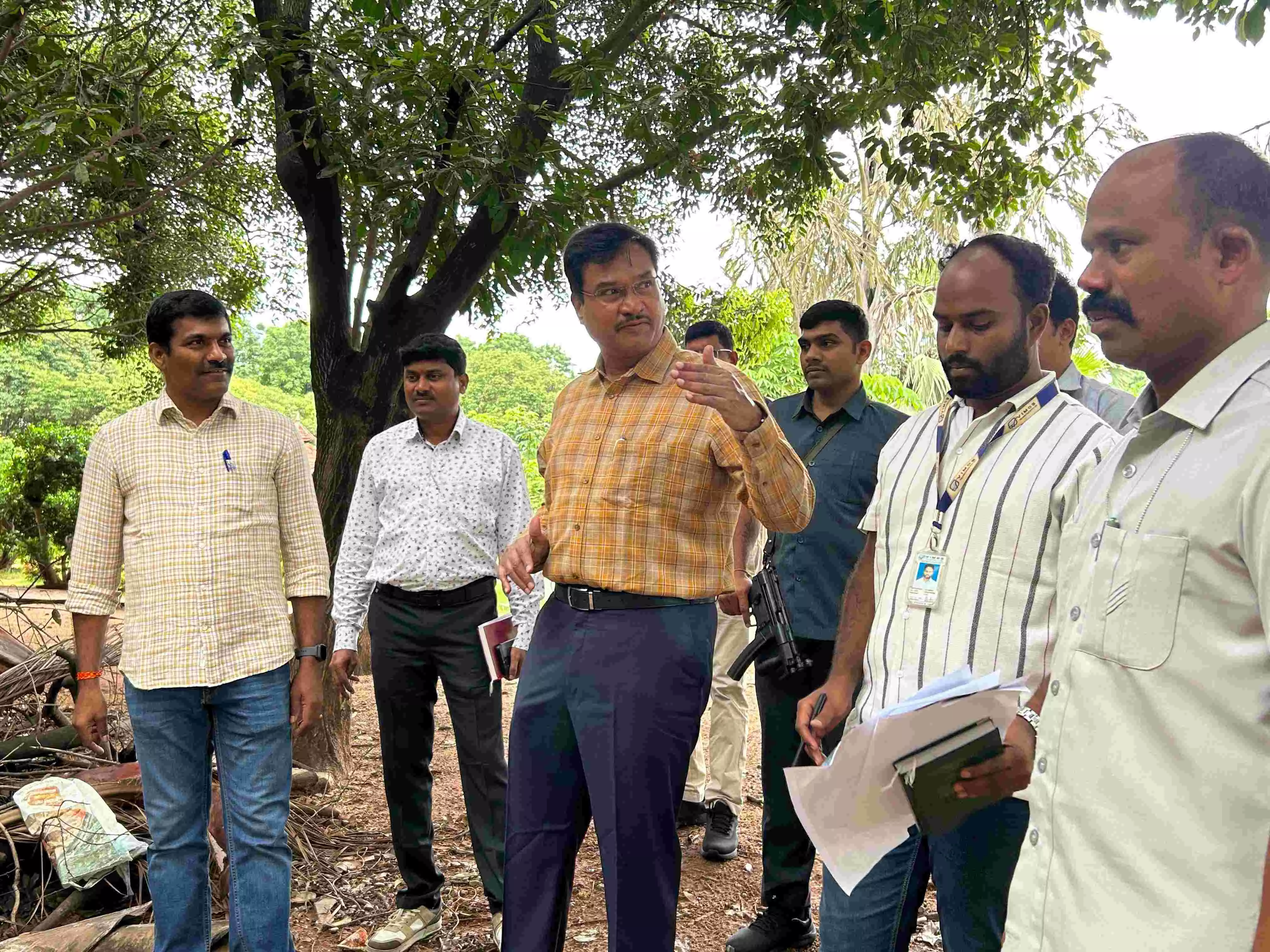HYDRAA begins study to divert Ameerpet areas' floodwater to Krishnakanth Park lake
The Krishnakanth Park lake, which currently spreads across seven acres, can be expanded up to 12 acres
By Sistla Dakshina Murthy
HYDRAA begins study to divert Ameerpet areas' floodwater to Krishnakanth Park lake
Hyderabad: The Hyderabad Disaster Response and Asset Protection Agency Development (HYDRAA) has begun its study to identify the feasibility of diverting floodwater from Ameerpet and nearby areas into the lake at Krishnakanth Park.
HYDRAA Commissioner AV Ranganath inspected the flood-prone stretches on Monday and reviewed both temporary and long-term measures to find a lasting solution to the recurring flooding at Ameerpet Metro Station and Maitrivanam junction.
Focus on flood-prone zones
During his visit, the HYDRAA Commissioner examined stormwater drains around Ameerpet and Maitrivanam and later inspected the Krishnakanth Park lake and feeder channels carrying rainwater from Jubilee Hills Road No.10, Venkatagiri, Rahmathnagar and Yousufguda.
Officials observed that the present alignment allows rainwater to bypass the park’s lake and flow directly through Madhuranagar into Ameerpet, leading to heavy waterlogging beneath the metro station.
Lake expansion as buffer
The Krishnakanth Park lake, which currently spreads across seven acres, can be expanded up to 12 acres.
According to officials, this expansion would enable the lake to temporarily store nearly 120 million litres of rainwater for a few hours before releasing it downstream once rainfall subsides.
Such a measure, they noted, could considerably reduce the intensity of flooding in Ameerpet and surrounding localities.
Terrain and waste add to woes
Flat terrain in Ameerpet is making it difficult for floodwater to flow out smoothly, officials pointed out. To make matters worse, garbage and plastic waste carried by rainwater obstruct the stormwater channels, further slowing down the drainage system.
GPRS survey proposed
To detect blockages in underground pipelines along the Ameerpet–Sanjeev Reddy Nagar main road, the commissioner directed officials to conduct a Ground Penetrating Radar Survey (GPRS).
This will help identify silt accumulation and choke points. If desilting proves ineffective, the construction of new box drains would be explored.
Short-term and permanent solutions
Ranganath instructed officials to ensure immediate clearance of existing pipelines to prevent water stagnation during the rains. He also emphasised the need to fix issues at stormwater crossings near Sarathi Studios and Madhuranagar.